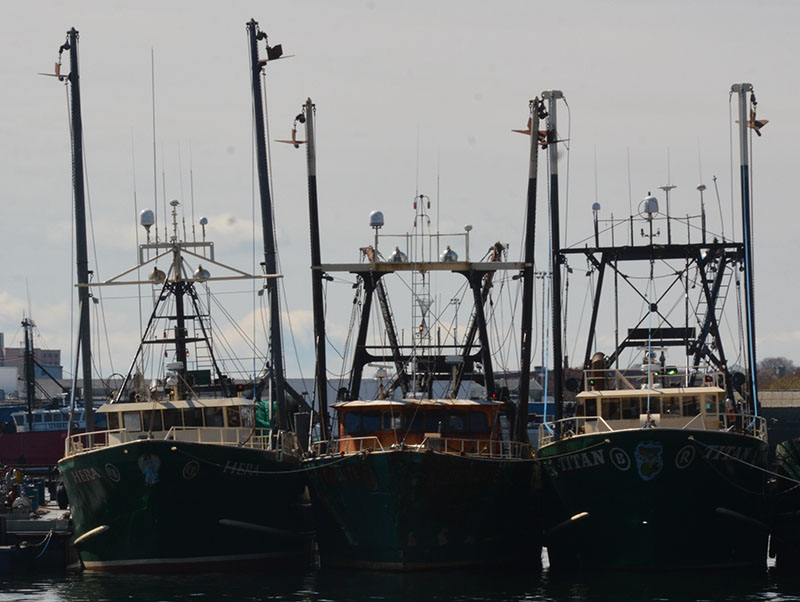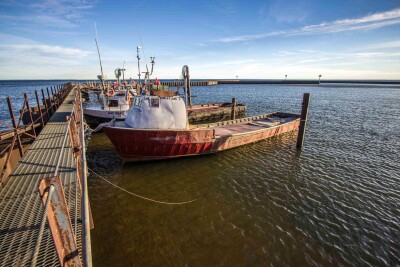Carlos Rafael’s guilty plea of falsifying fish quotas, conspiracy and tax evasion has prompted renewed criticism of one of the most contentious parts of the New England groundfish fishery’s management system: catch shares.
Rafael, who dubbed himself “The Codfather,” owned one of the largest commercial fishing fleets in the United States, and for some community fishermen in New England, his case represents consolidation run amok. Consolidating fishing permits, they say, also centralizes power, making fraud more likely.
But for environmentalists who support catch shares as a way to reduce overfishing, consolidation isn’t inevitable. They say Rafael’s case highlights the need for better monitoring and fraud protections to prevent the sort of cheating that can plague any fishery management system.
Catch share schemes, in which fishermen are allocated rights to catch a certain amount of fish, operate on the principle that privatizing a resource and giving people a greater stake in its health will lead them to conserve it.
But in New England, catch shares led to fewer fishermen controlling more of the resource, according to Niaz Dorry, the coordinating director of the Northwest Atlantic Marine Alliance, a community fishing group. Catch shares boot out smaller fishermen and block new fishermen from the fishery as a wealthy minority amass quota and drive up the price.
“What they really do is create a system that allows a few entities — who are not necessarily people who actually fish — to control almost the entire system,” Dorry told SeafoodSource.
Dorry believes that until fishing permits — and political and economic power — are more evenly distributed, fraud and cheating will continue.
“This is not just about Mr. Rafael; this is about a systemic problem that gave him more power than he should have been allowed to hold without checks and balances. And he’s not alone,” Dorry said. “Hopefully the others who have been accumulating power because of catch shares have a stronger moral compass.”
Catch share proponents argue that consolidation is not inevitable, and started long before 2010, when the catch share scheme was implemented for groundfish in New England. Consolidation can happen under any management scheme, including New England’s previous days-at-sea scheme, if nothing is done to prevent it.
When regulators were creating New England’s catch share system, they chose not to adopt anti-consolidation rules, according to Peter Baker, the director of U.S. ocean conservation for the Northeast at Pew Charitable Trusts.
Regulators could still reverse course by, for instance: requiring quota holders to be on the vessel when fishing, limiting the amount of quota a single individual or entity can hold, enforcing accumulation caps, allocating quota to communities rather than businesses or setting aside a certain amount of quota for new fishermen.
Such methods of combating consolidation have worked in other places.
“These are not only conceptual; all of these measures have been adopted in other fisheries in New England and elsewhere,” Baker told SeafoodSource.
However, nothing in the design of the New England system prevents consolidation. That allows permits to be concentrated in fewer and fewer hands, according to Bonnie McCay, a professor emeritus at Rutgers University, who has studied the challenges of managing common resources such as fisheries.
Catch shares generally do little to maintain job opportunities for small-scale fisheries, and for young people who are trying to rise beyond deckhand jobs.
“The prospect of becoming an owner becomes rare very fast when the cost of entry to the quota market goes up,” McCay told SeafoodSource.
Concentrating fishing permits also raises the risk of other Rafael-esque cases, where a small handful of people amass both economic and political power, McCay said.
Rafael, however, was been breaking the law for two decades. He had already built the majority of his holdings and committed most of his transgressions prior to catch shares, according to Jake Kritzer, who works for the Environmental Defense Fund’s Fishery Solutions Center in New England. It was poor monitoring that allowed his cheating.
“The failure to implement an adequate monitoring program created an opening for decades of illegal activity that occurred,” Kritzer told SeafoodSource. “These crimes could not have been committed in a catch share fishery with 100 percent monitoring at sea and on the docks.”
Monitoring ensures that fishermen are playing by the rules. It gives fishery managers greater confidence that limits are being met, and scientists better confidence in stock assessments, Kritzer said.
“Fishermen who want to play by the rules and work to make the system succeed will have greater confidence that their efforts are not being undermined by bad actors,” Kritzer said. “And those bad actors will find it to be harder and riskier to break the rules when faced with greater accountability.”
This article was originally published on SeafoodSource.com. It is reprinted with permission.







